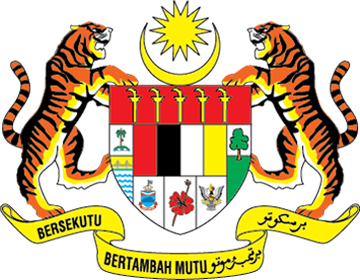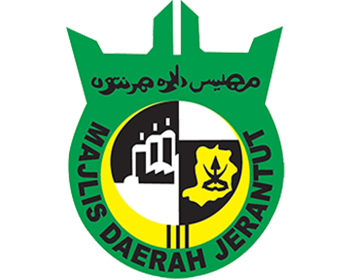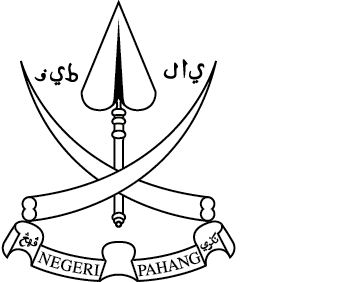| 1. | What is the Resident Representative Committee (JPP)? | |||||||||||||||||||||||||
|
Establishment of the JPP is an initiative taken by the Federal Government to implement the transformation of urban management as it is currently almost 70% of the country's population lives in the city. With the establishment of the JPP, the Federal Government can assist the State Government and the Local Authorities (PBTs) to interact directly with the residents and bring any issues to be dealt with together. This is because there are municipal issues whose jurisdiction lies under the control of Federal Government agencies such as health, transportation, security, housing, environment and others. Indirectly, the establishment of JPP can reduce the burden and responsibility of the Local Authorities in the area of urban well-being and enable them to focus more on other major affairs. Establishment of the JPP will provide opportunities and encourage participation of people in program and development programs in urban areas to enhance neighborhood sustainability. Hence, the people have the opportunity to engage in the views and problems faced by the local community for action by the Government. |
||||||||||||||||||||||||||
| 2. | Will JPP be established throughout the country? | |||||||||||||||||||||||||
| The JPP will be set up at 148 PBTs throughout the country except Kuala Lumpur City Hall (DBKL), Perbadanan Putrajaya, Labuan Corporation, Kulim Hi-Tech Industrial Park, Johore Municipal Board and Tioman Development Authority. The establishment of JPP is in accordance with the zone of maximum 24 zones for each PBT area. | ||||||||||||||||||||||||||
| 3. | What is the main objective of establishing a JPP? | |||||||||||||||||||||||||
|
Three (3) main objectives of the establishment of JPP are as follows:
|
||||||||||||||||||||||||||
| 4. | What are the roles and functions of JPP? | |||||||||||||||||||||||||
|
The roles and functions that JPP can play are as follows:
|
||||||||||||||||||||||||||
| 5. | How is the JPP organization? | |||||||||||||||||||||||||
|
JPP is administered by the Chairman and assisted by the Secretary and eight (8) committee members as follows:
|
||||||||||||||||||||||||||
| 6. | What is the role of Rukun Tetangga (RT), Resident Society (RA) and JPP? | |||||||||||||||||||||||||
|
The establishment of RT is based on the application submitted to the National Unity and Integration Department (JPNIN) while the RA is based on the application submitted to the Department of Registry of Malaysia and limited to certain housing areas. On the other hand, JPPs are set up in each zone that covers the entire area within the zone of each PBT. The RT and RA functions only focus on security issues, unity, community welfare and racial harmony in certain housing areas and monitored by JPNIN only (for RT) without direct involvement with PBT. Through the establishment of JPP, community participation in PBT governance can be improved in addressing urban well-being issues such as planning, landscape management, environmental pollution, crime rate increase, squatter settlements, social phenomena, vandalism and other municipal issues. |
||||||||||||||||||||||||||
| 7. |
Is there no overlap between the role of JPP and organizations or associations that are active in PBT areas such as Rukun Tetangga, Youth Associations, Mosque Committees and other organizations or associations? | |||||||||||||||||||||||||
|
These societies or associations focus only on certain aspects such as religious and social security. The distribution is randomly and involves only certain areas. Population associations are only active in their residential area and less interact with PBT. Through the establishment of JPPs, establishments or associations moving in the PBT area can also be adjusted to ensure that the programs implemented do not overlap with each other and PBT can take a comprehensive and collective action to address the issues of urban well-being raised by the population. |
||||||||||||||||||||||||||
| 8. | What is the function of the People's Representative Council (MPP)? | |||||||||||||||||||||||||
| The MPP will be set up at each PBT to coordinate and ensure the smooth running of JPP in every zone. The MPP will be chaired by the Mayor / YDP or the representative appointed by the KPKT while MPP members comprise the Chairman of the JPP in each zone, the Federal Local Leader (PTP) and the Heads of Federal Departments in the Local Authority. The MPP must meet at least two (2) times a year.
The main roles of MPP are as follows:
|
||||||||||||||||||||||||||
| 9. | Bagaimana hubungan JPP, PTP dan PBT? | |||||||||||||||||||||||||
| Pada masa ini, interaksi di antara Pemimpin Tempatan Persekutuan (PTP) yang terdiri daripada Ahli Parlimen atau Pemimpin Tempatan yang dilantik bagi mewakili Kerajaan Persekutuan dan PBT adalah amat kurang. PTP tidak terlibat secara langsung dengan perancangan dan pembangunan bandar serta pentadbiran PBT. Melalui penubuhan JPP dan pembentukan Majlis Perwakilan Penduduk (MPP) di PBT yang turut melibatkan PTP di kawasan tersebut dapat membantu penduduk untuk menyuarakan setiap permasalahan mereka kepada Kerajaan. | ||||||||||||||||||||||||||
| 10. | How do JPP, PTP and PBT have links? | |||||||||||||||||||||||||
| At present, interactions between Federal Local Leaders (PTPs) comprising Members of the Parliament or Local Leaders appointed to represent the Federal Government and Local Authorities are less. PTP is not directly involved with the planning and development of the city as well as the administration of the Local Authority. Through the establishment of the JPP and the establishment of the Resident Representative Council (MPP) in the Local Authority which also involved PTP in the area can help the residents to voice their concerns to the Government. | ||||||||||||||||||||||||||
| 11. | Who is the Appointing Authority for JPP members? | |||||||||||||||||||||||||
| The Appointing Authority for the Chairman is YB Minister of Urban Wellbeing while the Secretary and other members of the JPP committee are appointed by the KPKT Secretary General. | ||||||||||||||||||||||||||
| 12 | What are the general criteria or conditions for appointment of JPP members? | |||||||||||||||||||||||||
|
Residents resident within the zone;
|
||||||||||||||||||||||||||
| 13. | How long will JPP members take? | |||||||||||||||||||||||||
| Duration of appointment for JPP members for a term shall not exceed two (2) years. The appointment period of the SRC can be extended by the Appointing Authority based on the performance demonstrated by JPP members during the service period. Maximum duration of appointment is two (2) only. | ||||||||||||||||||||||||||
| 14 | Will the appointment of JPP be terminated? | |||||||||||||||||||||||||
|
Appointment of JPP members may be terminated at any time by the Appointing Authority with the recommendation and recommendation of the Chairman of the Resident Representative Council for the following reasons:
|
||||||||||||||||||||||||||
| 15. | What are the allowances and facilities received by JPP members? | |||||||||||||||||||||||||
|
||||||||||||||||||||||||||
| 16. | Does the role of the JPP overlap with the role of Council Members? | |||||||||||||||||||||||||
| JPP status is different from Council Member status. PBT is a body corporate and is a legal entity and is an enforcement agency. While JPP is an administrative nature that is not a legal entity and is not an enforcement agency. The JPP function is only intended to assist the public in a community to be active in the local government administrative process. As the JPP is established only in administration, any decision, recommendation or recommendation made by the JPP is unenforceable and therefore the PBT is not bound to comply with it unless the PBT agrees to adopt such decision or recommendation. | ||||||||||||||||||||||||||
- Home
- MDJ
- Profile
- Management
- YDP's Message
- YDP's Profile
- Councilor's Profile
- Chief Information Officer (CIO)
- Organisation Chart
- List Of Committees
- Committee on Employment and Services
- Finance and Investment Committee
- Assessment and Evaluation Committee
- Licensing and Legal Committee
- Planning, Landscape And Tourism Committee
- Committee on Cleanliness
- Technical and Traffic Committee
- Local Central Committee (OSC)
- Safe City Committee
- Disciplinary Board
- Business & Health Control Committee
- Kuala Tahan Development Committee
- Customer Management & Innovation Committee
- Job Interview Panel
- Newsstand Interview Panel
- Committee Opening Quotation / Tender
- Quotation / Tender Appraisal Committee
- Semakan Baki Klinik Panel MDJ
- Resource
- Media Centre
- EKSA
- Citizens
- Services
- Tax Assessment
- Waste Management
- Landscape Maintenance
- Counters
- eAduan
- Licensing
- Hall Rental
- Field Rental
- Stage Rental
- Parking
- Library
- Sports & Recreations
- Rakyat
- SENARAI KELULUSAN SEBAGAI PEKERJA KHIDMAT PENGHANTARAN (DELIVERY SERVICE) SELARAS DENGAN PERINTAH KAWALAN PERGERAKAN MAJLIS DAERAH JERANTUT 2021
- e-Services
- Community & Programme
- E-Penyertaan
- Job Vacancies
- PKPB-Perintah Kawalan Pegerakan Diperketatkan
- Services
- Businesses
- Visitors




